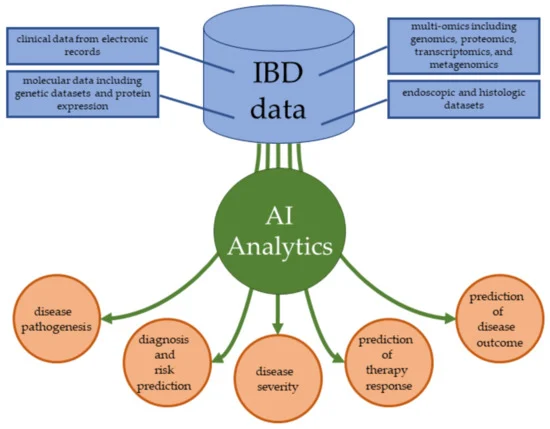Machine Learning Prediction Model for Inflammatory Bowel Disease Based on Laboratory Markers. Working Model in a Discovery Cohort Study. The Authors aimed to create an IBD machine learning prediction model based on routinely performed blood, urine, and fecal tests.
by Sebastian Kraszewski 1, Witold Szczurek 2, Julia Szymczak 3, Monika Reguła 3 and Katarzyna Neubauer 4*
*Author to whom correspondence should be addressed.
Inflammatory bowel disease (IBD) is a chronic, incurable disease involving the gastrointestinal tract. It is characterized by complex, unclear pathogenesis, increased prevalence worldwide, and a wide spectrum of extraintestinal manifestations and comorbidities. Recognition of IBD remains challenging and delays in disease diagnosis still poses a significant clinical problem as it negatively impacts disease outcome. The main diagnostic tool in IBD continues to be invasive endoscopy.
Based on historical patients’ data (702 medical records: 319 records from 180 patients with ulcerative colitis (UC) and 383 records from 192 patients with Crohn’s disease (CD)), and using a few simple machine learning classificators, we optimized necessary hyperparameters in order to get reliable few-features prediction models separately for CD and UC.
Following methods have been used and topics checked
- The k-Nearest Neighbour
- Gradient Boosting Classifier
- Random Forests
- Support Vector Classifiers
- Majority Voting
- Best Classifiers and Most Important Predictors
- Model Robustness
- Web Application Integrated Model
Here the full article and results published by Journal of Clinical Medicine:
https://www.mdpi.com/2077-0383/10/20/4745













